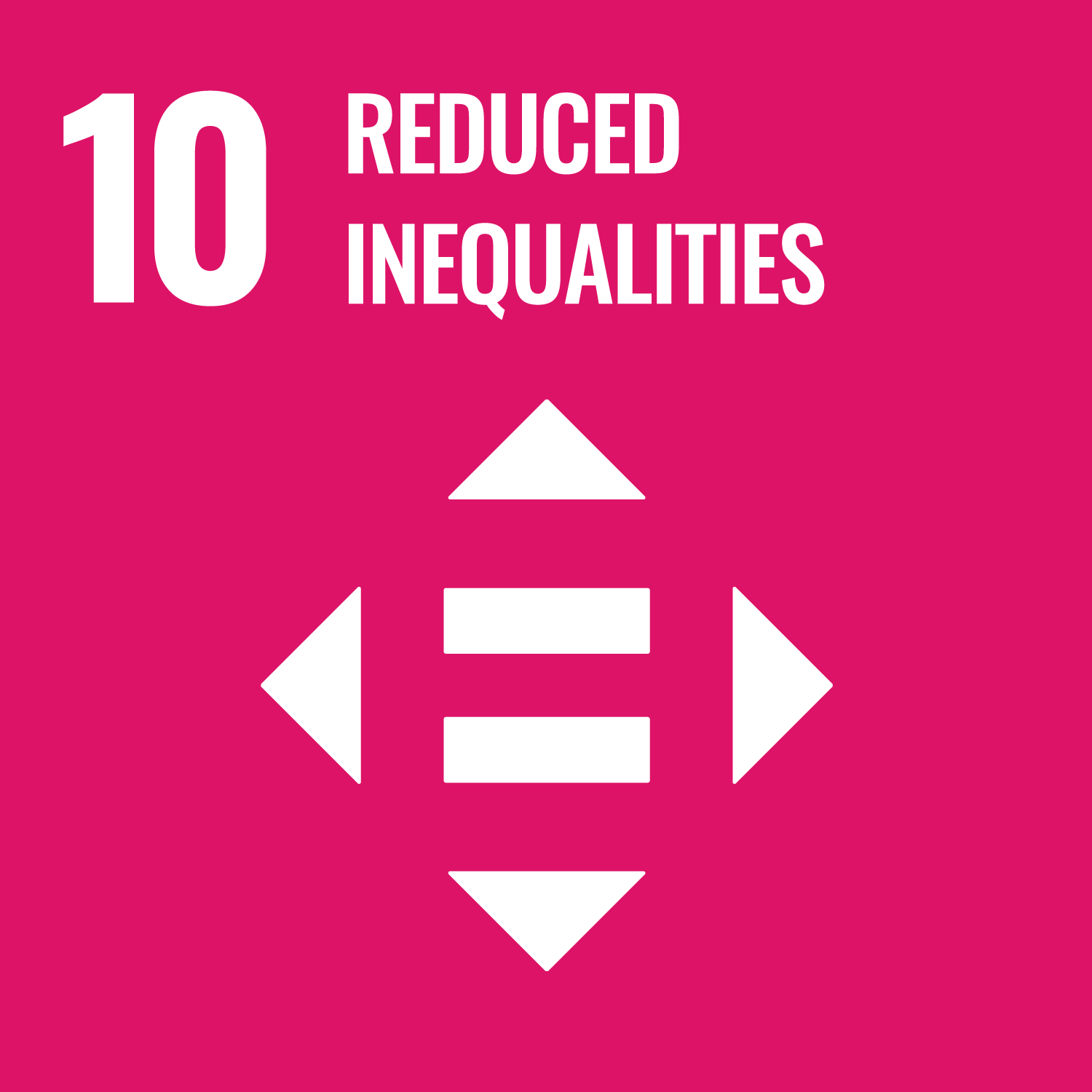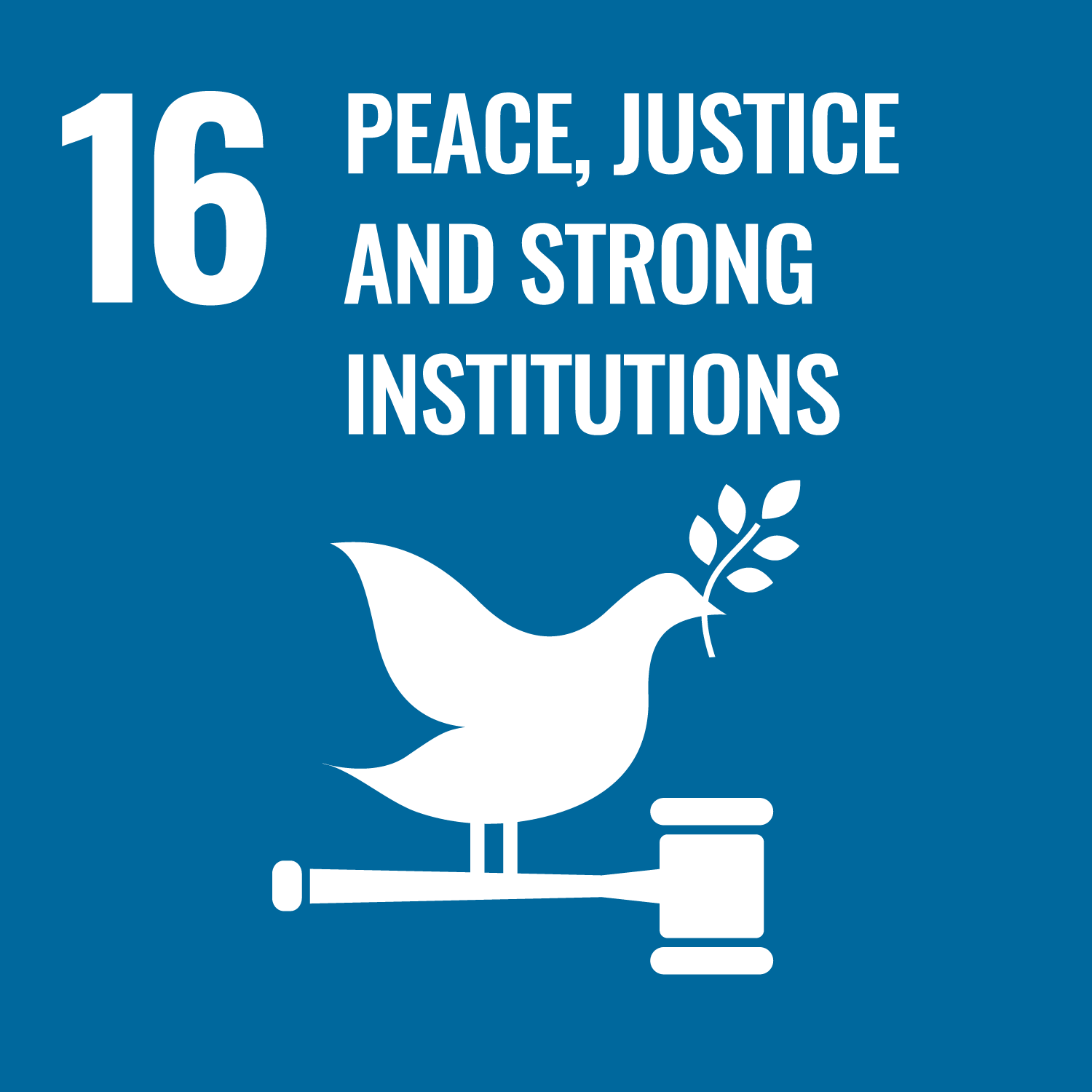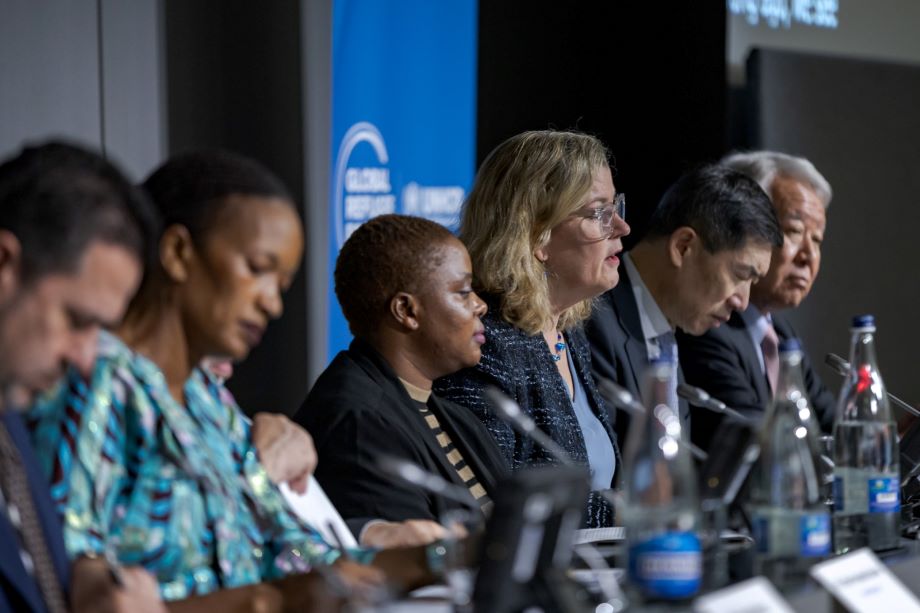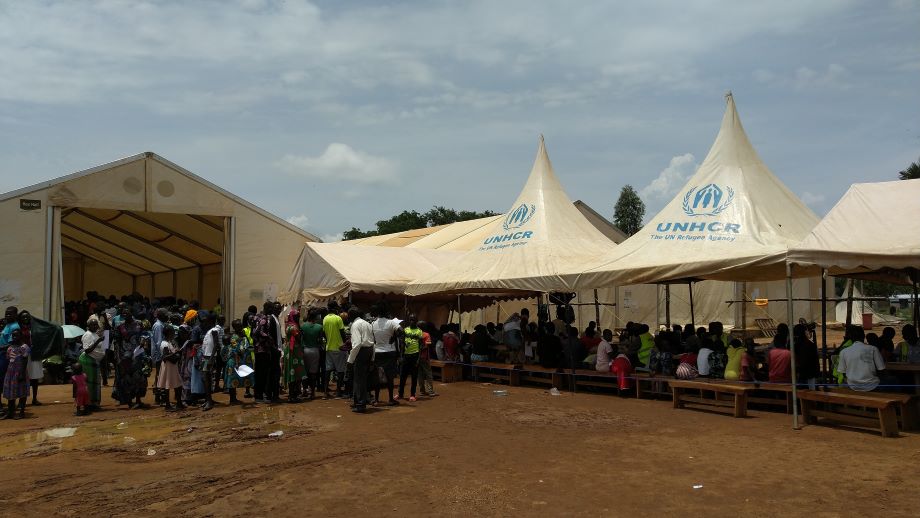1. Rapid increase of refugees and forcibly displaced persons and spread of protracted situations
In 2023, the humanitarian crises have become even more serious in many parts of the world because of violent conflicts, including the continued Russia’s aggression to Ukraine and the Israel-Palestinian conflict. As a consequence of these humanitarian crises, forcibly displaced populations are increasing. In recent years, due to climate change, natural disasters, economic crises, and other crises, many on-going crises are not ending, violent conflicts are protracted, and refugees have been displaced for longer periods of time. The number of refugees and displaced persons worldwide has exceeded 114 million (as of the end of September 2023), and it has surged by approximately 2.5 times over the past decade.
Many of these refugees and displaced persons have taken refuge in neighboring countries and areas: 62.5 million are internally displaced persons (IDPs) who do not cross borders; 69% of refugees take refuge in their neighboring countries; and 75% of refugees are received in low- and middle-income countries. 66 percent of refugees (80% if Ukrainian refugees are excluded) have been in protracted situations (displaced for more than five years). In these areas, displacement and reception are not emergency but the norm for the refugees and their host communities.
2. Humanitarian-Development-Peace (HDP) Nexus
The Second Global Refugee Forum (GRF) was held in Geneva on December 13-15, 2023. As one of the co-convenors of this forum, Japan called for a stronger response to the refugee crises, particularly advocated the importance of the Humanitarian-Development-Peace Nexus (HDP nexus). Until recently, the response to refugees and displaced persons has been focused on emergency humanitarian assistance, but as protracted situations have become the norm, mid- to long-term development cooperation perspectives are needed.
Since the time of President Sadako Ogata, JICA has been promoting mutual collaboration between UNHCR and JICA, partnership of humanitarian and development cooperation, and working for realizing human security. Building on the advice from UNHCR on refugee rights and protection, JICA has been promoting efforts to leverage the strength of development cooperation to forced displacement situations. I would like to present three specific features of development cooperation in response to the refugee crises.
First, it is to open up the diverse potentials and capabilities of people through capacity development such as education and training, and to promote their self-reliance and protect their dignity. In Uganda, JICA has been providing rice cultivation training to both Ugandans and refugees for many years, which leads to improved livelihoods in Uganda for refugees from South Sudan. In addition, JICA has been implementing a scholarship program to accept Syrian refugee students and their families to Japan since 2017, which also contributes to opening future possibilities for refugees.
Second, development cooperation can work with host governments to build appropriate policies and frameworks to improve the lives of forcibly displaced populations and their host communities. JICA has dispatched refugee policy advisors to Uganda and Zambia to work with the governments on their refugee response policies and help promote coordination between humanitarian assistance and development cooperation. In Uganda, JICA is helping to enhance a mechanism to integrate humanitarian assistance and development cooperation to efficiently provide public services to refugees and host communities. JICA also provides financial contribution to the Global Concessional Financing Facility (GCFF), which promotes institutional enhancement and infrastructure development in refugee hosting countries through the World Bank and other multilateral development banks (MDBs).
Third, the activities for economic and social development can promote mutual understanding and social cohesion for refugees and host communities. In Colombia, JICA is working with local communities to improve their livelihoods in areas affected by violent conflicts in the past. Joint activities such as livelihood improvement can enhance mutual understanding and social cohesion among local residents, returnees, internally displaced persons (IDPs), IDP returnees, and migrants and refugees who have fled from neighboring countries due to political instability and conflicts living in these areas. Promoting peaceful coexistence also helps to create a peaceful society to which refugees can return.
In order to fully take advantage of these features of development cooperation, the role of refugee hosting countries’ governments promoting the HDP nexus is crucial. For development cooperation to have a complementary and synergistic effect with humanitarian assistance and peace efforts such as conflict mediation and reconciliation promotion, refugee hosting countries’ governments need to create policies that can enhance the co-existence of host communities and refugees. The HDP nexus approach, led by the host countries’ governments, promotes mutually complementary cooperation to protect the lives of people in crisis, enable all individuals and communities, including refugees, to maximize their capacities and work as agents for development, and create resilient societies that can deal with various threats and prevent future conflicts. In other words, the HDP nexus approach is pivotal to realize human security in the time of the increased and protracted forcibly displacement situations.
3. Toward more inclusive “whole-of-society” approach
Another key to further promote the HDP nexus is broadening participation. In addition to humanitarian agencies, the “whole-of-society” approach by engaging actors involved in development and peace is required. The contributions to development and peace can come from not only the public sector but also private companies and organizations. In the opening plenary session of the GRF, Fast Retailing Company Ltd, which owns Uniqlo, announced that in addition to cooperation in providing clothing to refugees, it would also engage in cooperation through their business, such as employment of refugees and vocational training for refugees. The company’s pledge received strong support from the audience. The participants from Japan to the GRF have become more diverse, among them being the Japanese government and JICA, as well as private companies and NGOs, including the ones which support refugees living in Japan and/or promote the employment of refugees. It is hoped that the exchange of information on support for refugees in Japan and JICA's cooperation with refugees in other countries, such as Uganda, will lead to the co-creation of innovative solutions.
Mr. Filippo Grandi, UN High Commissioner for Refugees, has stated, "Everyone can contribute in their own way." It is not easy to find a single solution for more than 100 million refugees and displaced persons, but it is possible to find better responses tailored to each individual by focusing on their respective situations. The whole-of-society approach pushes each one of us to find our own ways to respond to challenges of refugees and displaced persons and their host communities to realize human security now.










scroll